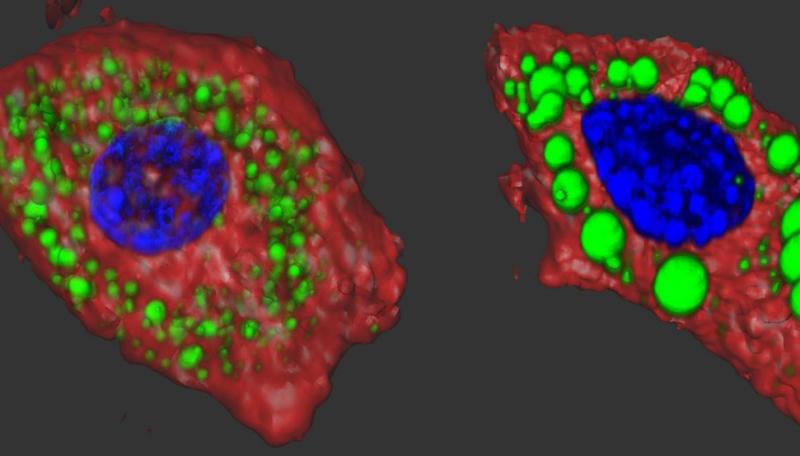
Fat cells with the R1788W ankyrin-B mutation (shown on the right) have enlarged lipid droplets. The green color highlights the sites of fat storage in mouse adipose cells. Nuclei are shown in blue.
DURHAM, N.C. - Practically everyone gets fatter as they get older, but some people can blame their genes for the extra padding. Researchers have shown that two different mutations in a gene called ankyrin-B cause cells to suck up glucose faster than normal, fattening them up and eventually triggering the type of diabetes linked to obesity.
The more severe of the two mutations, called R1788W, is carried by nearly one million Americans. The milder mutation, known as L1622I, is shared by seven percent of the African American population and is about as common as the trait for sickle cell anemia.
The findings, which were generated in mice, could help identify at-risk individuals who might be able to tip the scales back in their favor by eating better and exercising more. The results appear July 13 in the Journal of Clinical Investigation.
"This is one of the first examples of a susceptibility gene that would only be manifested through a modern lifestyle," said Vann Bennett, M.D., Ph.D., senior author of the study and George Barth Geller Professor of Biochemistry, Cell Biology, and Neurobiology at Duke University School of Medicine. "The obesity epidemic really took off in the 1980's, when sugary sodas and French fries became popular. It's not like we suddenly changed genetically in 1980, but rather we have carried susceptibility genes that were exacerbated by this new diet. We think our findings are just the beginning, and that there are going to be many genes like this." Read more